Introduction
Boosting the immune system has become a huge topic of discussion in the health and wellness area.
If you’ve ever considered how to boost your immunity, you aren't alone!
This week on The Goodness Lover Podcast we spoke with Dr. Heather Moday - board-certified immunologist and author of "The Immunotype Breakthrough” - about how to best balance your immune system, what food sources and supplements can support your immunity, and so much more!
Watch the Interview:
Dr. Moday shared:
🎈 How important it is to decrease inflammation and stress in regards to protecting your immune system.
🍽 How to obtain proper nutrients from your nutrition and lifestyle to balance your immune system.
🦠 What led us to the COVID-19 pandemic and previous novel viruses.
💊 Why you cannot supplement your way out of bad health.
🐍 How toxins and parasites damage cells in the body.
😴 Why poor sleep and circadian rhythm negatively impact the immune system.
And much more that can help you find a balanced, healthy life! 🎙
Additional Resources
To connect with Dr. Heather Moday and discover more of her work, you can find her on Instagram and Facebook. You can also visit her website here.Transcript
Sarah: Hello, and welcome back to the Goodness Lover Show. Today we're joined by Dr. Heather Moday, who's an immunologist, and author of the Immunotype Breakthrough. She's here to talk to us about how boosting your immune system may not be the best idea, and how you can truly support your immune system. Let's get into it. Okay, we are very excited to have Dr. Heather Moday here with us today, who is a functional immunologist, and allergist who's here to talk to us all about the immune system and how we can improve it. So thank you so much for joining us, Dr. Moday.
Dr. Heather Moday: Thank you. Thanks for having me.
Sarah: And I guess, obviously, I guess the concept of the immune system doesn't really need a big introduction as to what we're talking about, because it's on the forefront of everyone's minds right now, everyone is wondering, what can I do to improve my immune system? And I guess, I think a question that comes up in a lot of people's minds is like, how do I even know if I have a good immune system? Because am I at risk? As we open up this conversation, I guess it would be awesome to start with, how did we get into this immune crisis? Why are we even in the scenario where people should question if my immune system is strong or not?
Dr. Heather Moday: Absolutely. Well, that's a great question, because most people I would say are not aware of their immune system status. I mean, some people maybe, because perhaps they have a history of getting frequent illnesses, they're sick all the time. They might have had cancer, they might be immune suppressed because of medications or chemotherapy, or maybe they have an autoimmune disease. But most of us sort of float through life, especially when we're young, assuming that everything's going just fine and we don't really know. And part of it is because our immune system is so incredibly powerful, really more powerful than most drugs available out there. In keeping, really preserving our life, I mean, that is its number one task is to keep us alive and to protect us. But unfortunately, sometimes we do a lot of damage, and we get in the way of our immune system doing its job correctly, and that unfortunately, it gets us into trouble a lot.
So there are definitely signs and symptoms as to maybe some weakening of the immune system, and like some of the things that I just described. And then there's some certain chronic diseases that crop up usually later on in life that can reflect that our immune system is under duress. But you're right, there's not a lot of testing to go in to the doctor and say, "Hey, can you just test my immune system?" There may be a couple of things that you can look at, that might show some early signs, really we have to be super preventative, and work on preserving our immune system, so it can do its job.
Matt: Excellent. During that time, you said we get in the way. And I found that an interesting concept or pathway, we could go down. So could you elaborate on that more as to how we can get in the way of our own immune system?
Dr. Heather Moday: Absolutely. So when we're born, most of us with few exceptions have a pretty good immune system. I mean, some of us are born into better situations, either better nutrition, healthier mother, were breast fed, were born by vaginal birth, which actually gives us a stronger microbiome, which we know is really important for sort of setting up a good immune system. So that happens. And if you're healthy baby, that's probably the, as you grow into a young adult, you haven't done a lot of damage, and you have most of your resources. But as we move through life, just a lot of habits that people have, I mean, how we sleep, sleep deprivation, poor circadian rhythm, that's huge when it comes to how it affects our immune system and its ability to do its job. Of course, as I mentioned, the whole subject of our gut health and our microbiome as being really key because it aligns or so closely aligned with a very large part of our resident immune cells.
It's like the central headquarters. It's like that our version of the Pentagon, our immune system in the gut or right outside the gut. Of course, what we eat, our stress levels, our immediate environment. So as we move through life, oftentimes what we're exposed to sometimes because of things that we do, and habits that we have, but often sometimes it's things that we don't have a lot of control over. It can really start to shape and form how our immune system works, and that can backfire into different diseases. So we have a lot of control actually over how our immune system is able to do its job if we focus on some of these areas.
Matt: Excellent. So how can we get control? Because I feel I guess a lot of people will be listening to this feeling that perhaps with, for example, with a pandemic, some people are having these reactions, some people are not, and this is like this, people are feeling like they're rolling the dice somewhat as to whether they're going to get sick or not.
Dr. Heather Moday: Absolutely.
Matt: So I think how do we get gain control? How do we know if our immune system is functional?
Dr. Heather Moday: Yeah. So I think depending on where you are in life, I mean, obviously, if you're older, and you know that you might have some diseases or issues, health problems, that are rooted in chronic inflammation, it is really, really, really important to focus on doing everything you can to decrease that inflammation. And the reason is and as we have seen with the SARS-CoV-2 virus, when it first started floating around, we noticed that who were the people that were dying? And here in the United States, it was people who are obese, which what is it 50% of this country is now technically obese. People who had chronic heart disease, cardiovascular issues, diabetes, lung disease, things like that. The reason for that is because in all of those disease processes, there is inflammation at its core. And inflammation is not bad, inflammation is extremely important because it is the first step that our immune system takes in killing viruses, killing bacteria, healing, creating scar tissue, all that kind of thing.
However, if you're already in a state of chronic inflammation all the time, you have what I would term a very distracted immune system. You have immune cells that are off doing these things that are not really helping us. So that when we do get something like a novel virus, we don't have all the fortitude and the army that we need to really be on the ready to be surveilling for these viruses, because we're putting out fires everywhere else. So that's really, really imperative. And so I think that especially in that, to say that older population, or say 40s, 50s, 60s, people were scared, because they thought, "Well, what can I do?" And you really have to double down then on changing your eating habits, and changing your sleep habits, and stopping smoking, and excess alcohol, and all of the things that can drive a lot of these sort of lifestyle diseases. Now, it's a little bit different when you're younger, because you think you don't have any of these things, right? You feel pretty good.
But you can also look at, "Okay, how am I sleeping? How am I eating? Can I be preventative? Am I getting nutrients in on a regular basis that we know are very strong for our immune system? Can we work on gut health?" So you have to just really think of like, what can I do to make myself a healthier person, so that if I do come in contact with a virus that at least up until recently, we had almost nothing to treat it with. Am I going to have the immune fortitude or strength, resilience to get rid of it? And it's also important to know is that as we age, just normally, there is a process that's called immune senescence. And basically, that's just sort of the natural aging of the immune system.
Now, we do have control over that too, because obviously, you can have people in their 90s who have much better immune systems than say someone in their 40s or 50s. And again, that has to do with how they live their life. But there is that natural decline and so there is always going to be a little bit more of an issue in the older population in terms of being at risk.
Sarah: Thanks for that, because I think it's important that I think we take charge of our health because sometimes it's easy for us to feel like there's a virus and I just kind of roll over and surrender [crosstalk].
Dr. Heather Moday: Right. Sure, yeah.
Sarah: But we do have the capacity to change our health outcomes by what we do with our lifestyle, so that's awesome. Thanks for sharing that. So I know you have a book coming out in December called the Immunotype Breakthrough. And that's super exciting. Congratulations.
Dr. Heather Moday: Thank you.
Sarah: I would like to talk about the immunotype, what does that mean? It's very curious, I would love to know more.
Dr. Heather Moday: Sure. Yeah, so as we were just talking about is that our immune system, it's not one dimensional, it's not a black and white sort of organ. So I always say it sort of exists everywhere, nowhere, it doesn't really have one home. It's a bunch of different cells that have all these sort of chemical messengers and different tissues that all the cells hide out. And it's everywhere in the body, right? I mean, certainly, we know that certain cells hang out in lymph nodes and right outside the gut. So there's places where they sort of hone into, but really they're everywhere. So it makes it a little bit of an enigma. And I think when I started the idea of writing this book, it's because in the wellness world, and in functional medicine, and just in general, we always talk about boosting our immune system. So that idea of boosting it, where there's nothing wrong with saying that, but in my experience, boosting sort of implies that it's up or down, right?
It's either weak or strong, and that's it. But that's actually not the case, there's a lot more innuendo to our immune system. And the dysfunction that occurs in many different diseases that we see don't necessarily mean that someone has a weak immune system, or a strong immune system. It can mean that it is directed at something that it's not supposed to be directed at. So it could be self directed, like attacking our own tissue. It can be directed towards sort of benign things in our environment. Or we can sort of be constantly dealing, like I said with quite some chronic diseases in a very chronic inflammatory state, and so it can get very distracted. So this was this idea around how can we help people bring their immune system into balance by understanding based on their symptoms, maybe potentially on certain lab tests on maybe diseases or things, diagnoses that they've received? Are they imbalanced and where are they the types that I came up with was smoldering.
So smoldering is sort of that chronically inflamed, distracted, sort of immuno type. Misguided, which is sort of encompasses anyone who has any sort of autoimmune reactions in their body, as I lay out in the book is that the first lesson that our immune system learns right after birth is that we are absolutely never supposed to attack our own tissue. That is sort of like the first and most important rule of immunity is do not attack yourself. And then there's many people who have reactions. So these are hyperactivity, sort of people have hyperactive reactions to things in their environment. They're sensitive to everything, they have lots of allergies. And then lastly, there are people who also do have weak immune, they fall into that category, they need boosting, right?
They need to be able to fight viruses better, fight bacteria better, clear out parasites better. And you can be a mix and this can change throughout your life. I mean, it's not like you have one type for the rest of your life. There's different things that can change. But by identifying where you are on a spectrum, you have a much more specific pathway in order to get you back into balance.
Sarah: Interesting, thank you.
Matt: I think that's really an important thing to... Yeah, what your highlight there just about bringing, like this whole boosting thing like, you see it across, I guess, Instagram or anything [inaudible].
Dr. Heather Moday: Sure.
Matt: You're just like saturated with this concept of like, "Okay, if I take this supplement, I have a boosted immune system. Well, I'm going to take on COVID with my Quercetin, and zinc and vitamin D, and I'll be fine." So there's this mentality that we can do that. And I just would be curious to ask you about that. Obviously, those things can help and they can support but to just popping a few supplements, does it make as much of a difference as people maybe think that it does? Or in your experience or the research or the studies that you've seen, can you actually... Yeah, what is the most, I guess, needle moving aspect of the [inaudible] immune system regulation that we can have?
Dr. Heather Moday: Sure, well, I would say that we have a saying that you can never supplement your way out of bad health. So it's not going to replace other things. And if you are really not taking care of yourself, and doing a lot of damaging things, it doesn't really matter how much vitamin C you take, and how much vitamin D you take. However, if you are doing a pretty good job, and you supplement with some of these things that have been shown in clinical trials, you can potentially get a leg up, especially if you have any mild deficiencies. So I order vitamin D levels on almost everyone, depending on where you live in the United States. You could live in an area that gets very little sun, especially if you go up into the far reaches of the Northern Hemisphere. But also, most of us are inside all day long and we wear long sleeves, and we slap sunscreen on and everybody has variable absorption of vitamin D anyway.
So I see people in the middle of the summer with very low vitamin D levels. And for those people, that is an issue, because it's such an immune regulator, I mean, vitamin D is really a hormone more than anything else. And just by normalizing your levels, that can be very helpful. So I think it is really, you don't have to take super normal levels of some of these things. But if you're not able to get really adequate levels through your food and your nutrition, it can be really helpful to supplement at least to get you into an optimal range.
Matt: So I guess the takeaway message for that would be also to test and don't guess you wouldn't be like, the assumption is I'm taking vitamin D supplement, so I'm fine and not thinking about the absorption or any gut issues that could be happening there that [crosstalk].
Sarah: Or even if you were low to begin with.
Matt: Yeah, you might not be low to begin with.
Dr. Heather Moday: Right, exactly. And some people are really surprised when they do get their nutritional levels tested for some of these vitamins and minerals. They're like, "Oh, my God, I eat you know, X, Y and Z all the time. I can't believe I have low numbers." And as you just said, a lot of it does have to have to do with absorption. As we know, if you have problems with absorption in the small intestine, you're going to have problems absorbing certain macronutrients, like fats, for example. And if you can't absorb fat, you're going to have trouble with fat soluble vitamins like vitamin A, and vitamin D. So I see a lot of people who have low levels of certain vitamins, and some of them even take supplements. So yeah, it can be really, really interesting when you start poking around what you find.
Matt: Awesome.
Sarah: Thank you.
Matt: Well, so I'm guessing from some things, I'm like, like, I guess, following the breadcrumb trail that it seems that the current crisis that we're facing here is the result of like, it was like almost like a ticking time bomb in terms of our immunity, this low grade inflammation, which is like the biggest problem that we're facing. Now, you throw in like a virus into that low grade inflammation, everyone's immune systems down, and all of a sudden, we're all freaking out. So how do we get here, do you think? Why would this point where immune systems are so compromised? What immunity is on the rise? Obviously, we're facing a pandemic. What are some things that led us here to this point?
Dr. Heather Moday: Yeah. So I think back 100 years ago, we did deal with infectious disease all the time. But that was pre hygiene practices, it was pre public health, it was pre good sanitation. But if you went back to the huge influenza breakout that happens in the very early 1900s, that killed, I think we just surpassed that number with COVID been around for 18 months or so. I mean, it killed killed millions of people worldwide, but part of it is that we didn't have good sanitation. People lived not as long because nobody had, there was no vaccines back then. So childhood mortality was very high, women died in childbirth, there was no antibiotics so people had syphilis and all sorts of things. So people died of infectious disease all the time, it was something that just happened. And there was no advanced hospital treatment, ventilators, all that kind of thing. So that was really normal.
But then as we changed, and we got sanitation and cleaner water and more regulations, and regardless of what people think about vaccines, it did save a lot of lives. So eradicated many diseases, we learned how to get rid of tuberculosis, we created penicillin. So people started living longer and healthier. But then, we also started to drive cars, and sit around and eat fast food and not exercise and watch TV all the time, and then millions of chemicals came into our environment. So we sort of like the pendulum completely changed to, yes, having an infectious disease kill us mostly, to having chronic smoldering diseases that are based on just all sorts of inflammation that was really induced by what we eat, how we sleep, how we work, chemical exposure, all this just massive changes. So now that's where we are. So the things that kill us now are not TB and things like that. It is mostly things like stroke, diabetes, hypertension, heart disease, cancer, et cetera.
But then you throw in a virus that is novel, that because we've also been encroaching upon natural habitats of animals, these are all viruses, these SARS viruses, they're all zoonotic viruses. So they jump from their host animals to other animals that of course end up because we're now so close to, we're encroaching upon these animals environments, and then also people eat animals that have these viruses. And that's really how so many of these so called novel viruses have come into the human sphere. They've been around for a long, long time. It's not like it just showed up yesterday. Like this virus has been around for who knows how long. So now it comes, it's like we've never seen it before, so we have no natural immunity to it, and we're all inflamed and in bad shape. And so it's really hard for us without a natural immunity to take this on. So it's sort of like a combination of factors as to why this was it really just hit us hard.
Sarah: Well said.
Matt: Interesting. Yeah, well said. Thank you. You mentioned toxin string, what you were saying, and definitely, I was intrigued, and there's a lot of people out that are like, "We're fine." And toxins that's like pseudoscience. But what evidence is there about toxins and our immune system? Or perhaps even things like pesticides, herbicides, I'd be curious to know about that as well on our immune system?
Dr. Heather Moday: Well, there's quite a bit because as we were talking about the garden, the microbiome, microbiome is made up of trillions of microorganisms, a large part are bacteria, but also yeast forms and some viral forms, and some parasites et cetera. And it's this incredible sort of symbiotic I would say, organism almost. But these are things that are very susceptible to different chemicals that we eat and touch and inhale. So pesticides would be a big part of that. Pesticides are there to obviously kill things that are destroying crops, they also can be very harmful for our microbiome. We know that glyphosate which is pretty much everywhere is not good for our microbiome at all. But there's a lot of data looking at other things like, for example, many of the parabens and plastics and dilates can change.
What they can do is they can actually, they create what are called haptens. So they can adhere to cells and change how they look. And it's really, our immune system as complex as it is, it understands, it learns what is foreign, and what is dangerous, because otherwise, it would attack everything. So when you create cells that look foreign, it's much more likely to attack it. And this is why there are definitely things like heavy metals, and different organic chemicals too that are related to an increase in autoimmune disease. So you had mentioned why this increase of autoimmune disease, that's one of the reasons is that we know that a lot of environmental toxins can really trigger the immune system to have an auto immune reaction and certain people that are susceptible. So that's a big one. The other thing too, is that toxins can damage cells, like I said. So it encourages our immune system to then come to the rescue to try to fix it, to put out a fire.
That requires a lot of antioxidants. And if we don't have a lot of antioxidants through our diet, that can put us in a chronically inflamed state and make it so that we can't repair. And that's another reason why people may also have an increase in cancer, because again, toxins can damage cells, it can harm DNA, so that things look foreign and look dangerous, and again, sort of cause that inflammatory response. So yeah, there's a lot of reasons why toxins can really sort of change the direction of our immune system.
Sarah: Well said, again, thank you, Dr. Moday.
Dr. Heather Moday: Sure.
Sarah: We spoke before about, I guess testing the role that plays in the supplementation routine you might take to support your immune system. But provided someone has had that done, or maybe can't afford it or something rather, what typically do you prescribe or advise your patients to do in your practice as far as their food and supplement routine goes, if they're wanting to support their immune system?
Dr. Heather Moday: Sure, yeah. So I think one way to do it without getting any testing done is to just evaluate what you eat on a daily basis. And so what I do with all of my patients that come in, is we have them start tracking as annoying as that may be, but you don't know what you're eating until you actually start tracking it. We have this sort of sense of like, "Oh, yeah, I eat this, I eat that I get enough fiber, iron, whatever." But until you start tracking, which you can do with many apps, so you can use MyFitnessPal, you can use Cronometer, there's so many out there. And it's really eye opening, because I've done this myself many times and I am sometimes very shocked to realize like, "Wow, I really don't get enough calcium on a daily basis." So you can track certain macronutrients but also micronutrients.
So for example you can put in zinc, vitamin C, selenium, vitamin A, some of the bigger like antioxidant, vitamins, and track to see whether or not you're actually getting these on a daily basis from your food. Are you hitting that sort of percentile that you should get? So if you can do that for a couple of weeks, it's a great way to get a sense of, okay, well, so what I'm eating right now on a daily basis, is this enough? And then, of course, you can add things in. So if you find, well wow, I'm not getting enough zinc, maybe I should eat some oysters if you eat shellfish, or maybe I need to eat pumpkin seed, and try to get yourself up to that level. Or I'm Selenium deficient, I'll eat some Brazil nuts or I have vitamin A problems, I need to eat more beta carotene rich foods. So you can really manipulate that quite a bit. And if you find like, there's just no way I can't do this, either because of certain dietary restrictions or allergies, or whatever, then you can add supplements in.
So that's a good way to sort of to do it without doing a lot of fancy test. Now the caveat is as we spoke about is that sometimes what you eat is not what you absorb. So there is that. So I am not against people using, especially during a pandemic, during cold and flu season where we've got a lot of other viruses that are circulating around not just SARS-CoV-2, but just regular cold viruses and influenza, it is not harmful to take extra vitamin C, or vitamin D or zinc for a few months just to make sure that you've got your bases covered.
Sarah: That's sound advice. Thank you.
Matt: Excellent. So that's essentially, some of the core advice you've given to some of your patients that are concerned about the pandemic, and how to balance their immune system not boost their immune system.
Dr. Heather Moday: Yeah, well, on their supplement level, sure. And there's many other things that you can use, depending on sort of what your needs are. For example, if you're a person who is prone to getting infections quite a bit, or maybe there are some parameters that show that you have some weaknesses, so you can use other things for that. But there's other things that I think are just as important, which would be things like how you sleep and stress, which if you had to look at it a period of time that people were more stressed this I don't think you'd find it except for maybe during the war. And stress is, unto itself is not a bad thing. In fact, I talk a lot about this in the book is that stress can be very good. There's an upside to stress. But it really depends on the level and how long you have it because it's not the stress that's the issue, it's how we respond to stressors in our environment, but also how that changes the way our body reacts.
Because stress really when we talk about it, we're really referring to the hormonal reaction that occurs when we sense stress. So it's our cortisol and our adrenaline and the cortisol in particular is what changes at least temporarily, and sometimes actually, chronically to how our immune system is able to work. Because low level chronic stress for months or years, instead of being let's just say, anti-inflammatory or healthy, starts to actually weaken our immune system quite significantly. So it decreases the activity of certain lymphocytes, so T-cells. It decreases the ability of our body to put out certain levels of antibodies, in particular something called IGA, which is sort of a first line of defense, especially in our respiratory tract and also in our gut.
And this has been borne out by a lot of different studies that they've looked at, in terms of outcomes of health in people who had chronic stress, either from being in the military and having PTSD, or just really hating their job and having horrible work stress. It's really quite amazing what stress can do to our immune system. So that's an area that I think a lot of us need to focus on tremendously.
Sarah: Thank you.
Matt: So you would suggest for I mean, the obvious things would be like yoga, breath work, meditation, what are some great, someone's like, "Oh, man, I'm that person. I've had my job for like 30 years. I'm screwed." So how do we get that under control quickly?
Dr. Heather Moday: I think everyone is different. But I always laugh I'm like, if you're the person who says, I'm meditating and gritting your teeth at the same time, well, then that's not working for you.
Sarah: That's me.
Dr. Heather Moday: So in meditation, it's really more about being mindful obviously throughout the day, and meditation is a practice and you have to give it some time, and there's many different kinds. So it's like going into a shoe store and trying on one pair of shoes and then saying, "Oh, they don't fit I hate shoes. I'm never going to wear shoes again." That's not how it works. So for some people they may find that being out in nature is what helps them. So doing some form of like forest bathing or just being out and that may lower their adrenalin and lower their cortisol and really put them in a more mindful state and that might be enough. For other people, they may need to talk to a therapist or have more connection. For some people, it may be doing some creative work or journaling.
So there's not one way to necessarily reduce or change your response to stress, but there's a lot of data on some of the things that you just mentioned. So for example, different breathing techniques. And the reason is, is that our breath can change how our autonomic nervous system works. Our autonomic nervous system, our parasympathetic, and our sympathetic nervous system is the fight or flight or digest, rest and digest, those are the sort of the two arms of our autonomic nervous system. And if we can do interventions on a daily basis, that keep us more in that rest and digest parasympathetic mode, such as deep breathing, yoga, Tai Chi, those are just a couple of things, then we're going to be a lot better off because we're not going to have chronic release of excess cortisol and chronic release of adrenaline, which is going to keep us in that fight or flight state.
Matt: Excellent.
Sarah: That's a very good reminder, feeling the need to go for a little walk through the bush after this. It's great idea.
Matt: Specifically the bush.
Sarah: Yeah, the bush.
Matt: [inaudible].
Sarah: [inaudible] in Australia.
Matt: Not the forest.
Sarah: The forest.
Matt: The woods.
Sarah: The woods, yeah. But before you mentioned, obviously, key immune support vitamins and minerals being vitamin D, zinc, vitamin C. What is it about those three things specifically that is okay for immune function?
Dr. Heather Moday: So vitamin C, it has so many different mechanisms, but I would say that one of the biggest is that it is a sort of super antioxidant. And the whole idea concept behind an antioxidant is that all day long, we are exposed to what we call free radicals. So this can be from the sun, it can be from pollution, but we also create free radicals every time we make energy in our body. So all of our cells constantly are creating free radicals right inside of our bodies, and we have to be able to squelch them, because the free radicals do damage because they want to neutralize themselves. So they find tissue to sort of glob onto and they can damage DNA over time.
Sarah: I love these words, welsh, glob on.
Matt: Awesome.
Dr. Heather Moday: So if you think about it. So everyone knows if you go out into the sun, you don't wear sunscreen and you're out for a long time, you're going to have UV radiation that is going to then damage the collagen in your skin. And potentially over time not only have wrinkles, but maybe cause cancer cells, right? So you can get skin cancer. We all know that, you guys live in Australia, you have a lot of sun there, a lot of skin cancer. But every day, even what we eat can cause a lot of free radical damage, high fructose corn syrup, excess sugar, transfats, all sorts of things. So we need a constant supply of these free radical neutralizers and that's what an antioxidant is. So it really comes from our food, and vitamin C is one of those. We can't make vitamin C in our body, we have to get it from food. It's also water soluble, so we don't store a lot of it. So we have to constantly repeat it.
The other thing is that you need vitamin C to do things like actually create enough cortisol in the body. So it's really important for that. You need it in order to have really active certain white blood cells. There's a very important white blood cell called a neutrophil. It's sort of like the-
Matt: Sounds like a [crosstalk].
Dr. Heather Moday: ... kamikaze pilot. Yeah, it's sort of like I call it the kamikaze pilot of our immune system because once it engulf something and actually injects it with sort of a poison and then what happens is it goes into a suicide mode, so it actually kills itself. So that's the kamikaze pilot, but we didn't have neutrophils we'd all be in a lot of trouble. But you need good vitamin C to have healthy neutrophils. So that's, I would say it's got multiple roles. Zinc, I would say most important aspect of zinc is that it's extremely protective and important for all I would say what we call mucous linings.
So that's anything, any surface, so our skin, inside our mouth and our respiratory tract. So it's really important for the integrity of membranes. And our membranes, both in our gut, in our nose, in our lungs, it's really if you think about it, it's sort of the one of the first lines of defense before our innate immune system even gets activated. So when you get a cold, what happens? Your nose starts to run. It gets swollen, and you get that mucus. And that's an attempt to actually remove things from the body to actually get viruses and bacteria out. So zinc is super important for membrane stability but it's also really important for antibody formation. So you can't have really healthy production of antibodies without zinc. So that's just two things that zinc does. And then you mentioned vitamin D, vitamin D is very interesting, because we call it a vitamin, but we actually make vitamin D in our body from sun.
So when sun hits our skin, it activates a chemical that then goes to the kidney and becomes vitamin D. So it's really a hormone because it has an effect elsewhere. But vitamin D is really interesting because it can go inside of cells and can turn genes off and on that regulate our immune system. So we like to call it an immune modulator because it can sort of cause inflammation, but also turn things off. So it's a really, really important thing to have enough of so that it can do its job to moderate the immune system.
Matt: Awesome. Thank you.
Sarah: Excellent.
Matt: I mean there, I'm guessing as well, because a lot of people now at community they love herbs. They love being in the backyard, playing with herbs, bitters, and things like that.
Sarah: Playing with them.
Matt: Yeah. Playing, like playing armies with them.
Sarah: Growing.
Matt: Growing.
Dr. Heather Moday:
I love herbs too. They're great.
Matt: Any specific herbs that you would also recommend to be within a diet that have got great immune boosting... Sorry, balancing effects.
Dr. Heather Moday: Balancing. Yeah, I know, right? I sometimes I find myself saying boosting too. It's okay. So let me think about that. There's a lot of herbs that have what we call polyphenols, which you've probably heard of. So polyphenols are these really important plant chemicals, which a lot of them actually are antioxidants. So some of the big ones that I think of in the herb family would be Rosemary is a really big one really, really, really important. Others would be oregano, and oregano has a lot of antibacterial and antiviral properties. You'll find it a lot in tinctures and supplements for improving gut health because of that. So oregano is a really important one. Thyme is also another so those are sort of like the three culinary herbs I can think of that are super, super important.
Other things that would not be in the herb family what but would be more like I would say roots would be things like turmeric, which used as a spice because of the chemicals that is in that are called curcumin or curcuminoid. That is probably like that's sort of the powerhouse of the, I would say the spice family is turmeric root in curcumin. Garlic, of course, because of both antiviral and anti-inflammatory antibacterial properties. Really big fan of that and ginger actually too, ginger can be very antiviral. So I would say those are things that come to mind that people would be growing in their garden, possibly that would be in that sort of apothecary for your immune system. And then of course there's the mushrooms, which is a totally different a whole other world of wonder.
Matt: Awesome.
Sarah: Awesome. Thank you so much.
Matt: Yeah, well, obviously we've learned I'm guessing just also the tip of the iceberg on a lot of this topic. And it's such a hugely, it's a massive thing that we're all facing today. So thank you for the work that you're doing and getting this work out there and we're very excited for your book.
Sarah: Thank you.
Matt: Someone right now is like, "Man. I need to learn more. I want to keep balancing now boosting my immune system." Where do they find you? Yeah, what's the best way of getting in contact with you?
Dr. Heather Moday: So they can certainly reach out. I mean, obviously, internationally, you can reach out by going to our Instagram account, which is @THEIMMUNITYMD. And then also, my practice, which is a virtual practice is www.modaycenter.com. And we're going to be doing a lot more there as we lead up to the book launch and doing some more educational programs and things like that. So that should be a lot of fun as we get into the beginning part of the new year. So yeah.
Matt: Awesome.
Sarah: Awesome.
Matt: It's such an important book to come out. And thank you for everything you're doing, and making us more aware about immune systems. And obviously, anyone that's listening that suffering from autoimmune disease, as we discussed, I'm guessing we didn't even touch on things like Asthma.
Sarah: Whether they're smoldering or misguided.
Dr. Heather Moday: We didn't even talk about the allergies.
Matt: Yeah, the allergies, et cetera, definitely check out your clinic as well. That'd be a great place too. Yeah, so you serve people all around the world?
I don't right now, we have some programs that we can serve people in the United States. It's a little trickier here because of medical licensing. But I'm licensed in several states and so I do see people from several states, and then we have some programs run by my nutritionist who's wonderful and amazing functional nutritionist. And she's able to take care of a few more people than I am just because of how things work here.
Matt: Awesome.
Sarah: Excellent. And so for our international audience, Instagram, and the book is the way to go. So that's awesome to have all those different options.
Dr. Heather Moday: Absolutely, it's going to be out December 20. It's been published, it's going to be very exciting day. So it is going to be published so far, I think in five other countries. So that's fantastic. Not Australia yet so-
Sarah: Hey, why not?
Dr. Heather Moday: ... we're working on that. But in the UK, and a few other places, but it's available of course, Amazon, Barnes and Noble and any, indie bookstores here in the US.
Sarah: Excellent. Very exciting, just in time for Christmas. That's you so much, Dr. Moday. We've loved having you here to discuss such a important topic.
Dr. Heather Moday: Thanks. It's been a pleasure. It's been really great.
Matt: So what do you guys think? How are you going to balance your immune system? And what are you incorporating? You know, play with some herbs in the backyard, or you going to eat them? Let us know in the comments what you thought of the interview, what are you going to take away? And yeah, we'd love to create content like this for our Goodness Lover family, for all people all around the world. If you want to help support the show, that would be great. So if you could leave us a review on iTunes or leave us a lovely comment below. If you really want to be a good student, you could hit that like button and subscribe because many of you are not subscribed. So make sure you click like, subscribe, hit that notification bell and we will see you very soon.









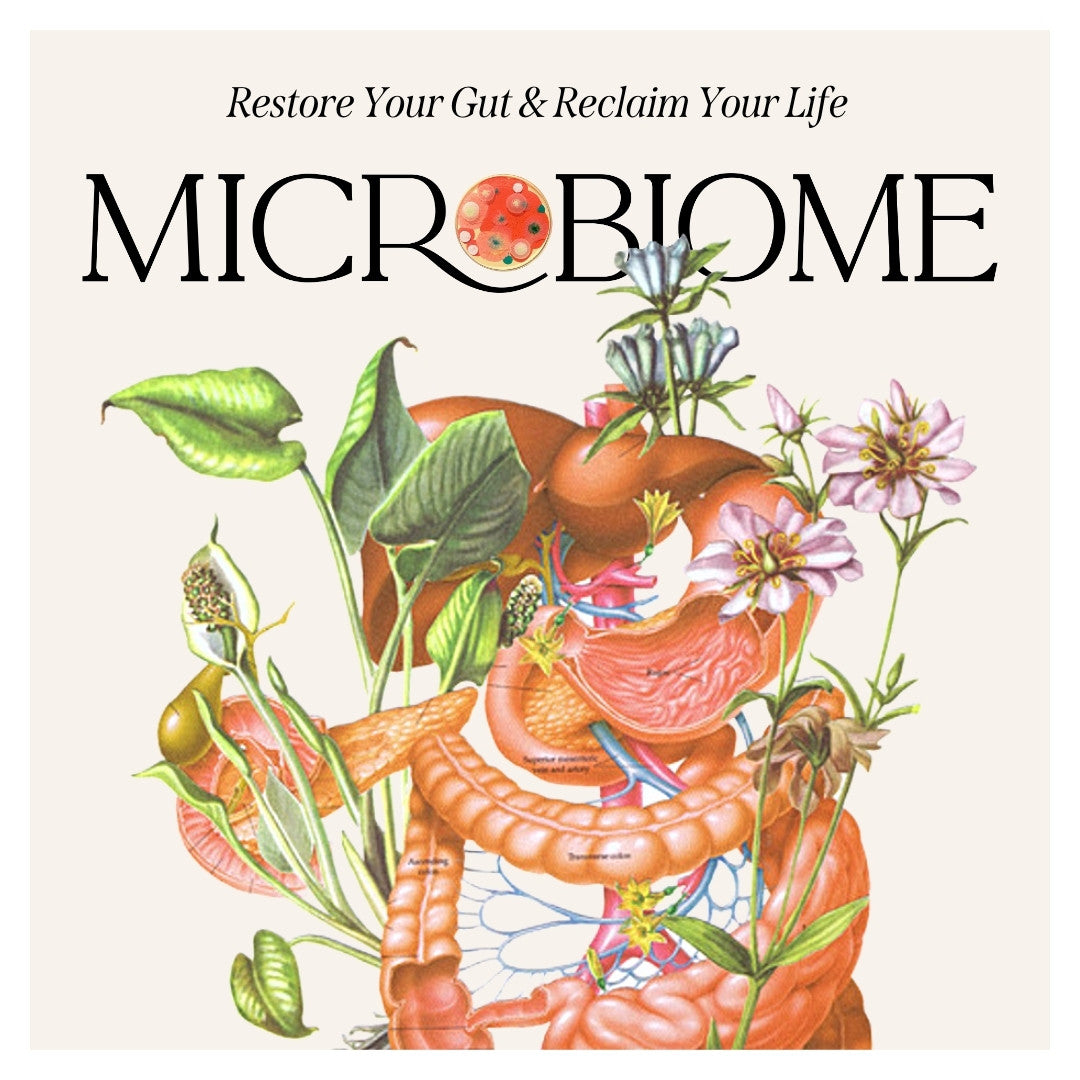

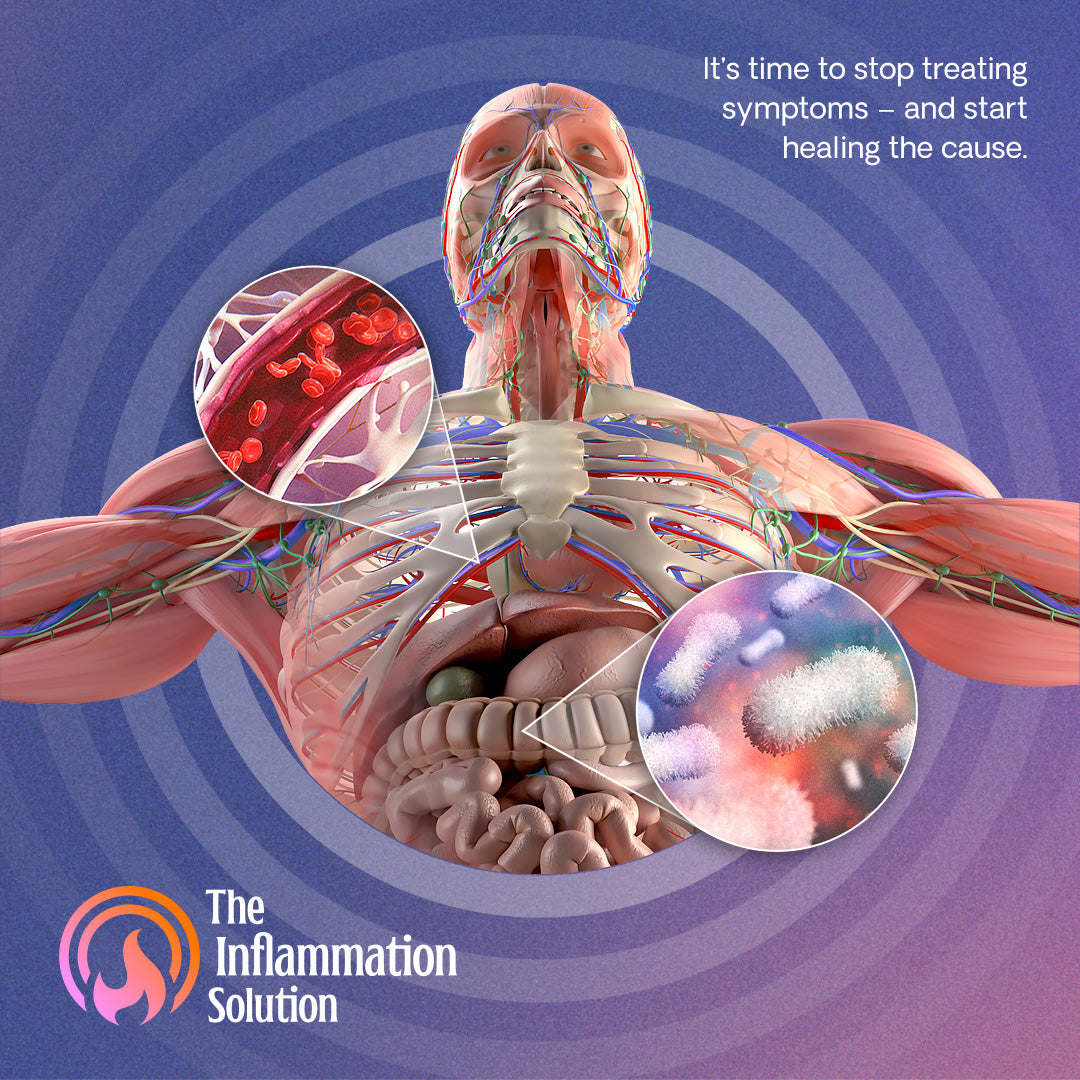
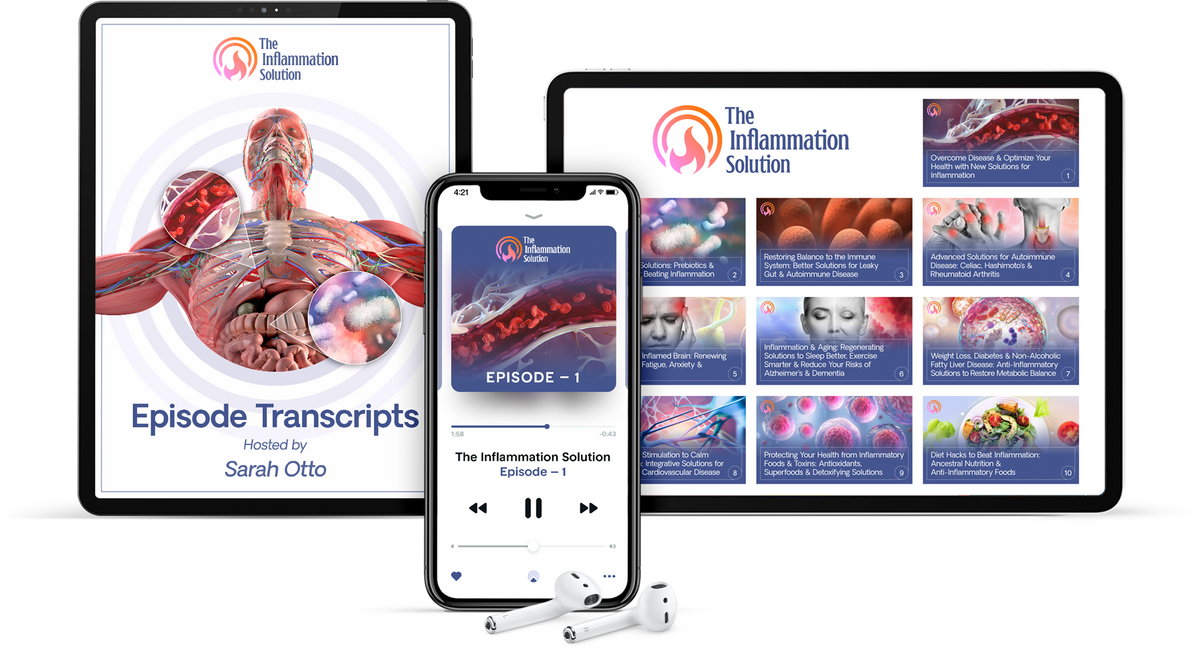
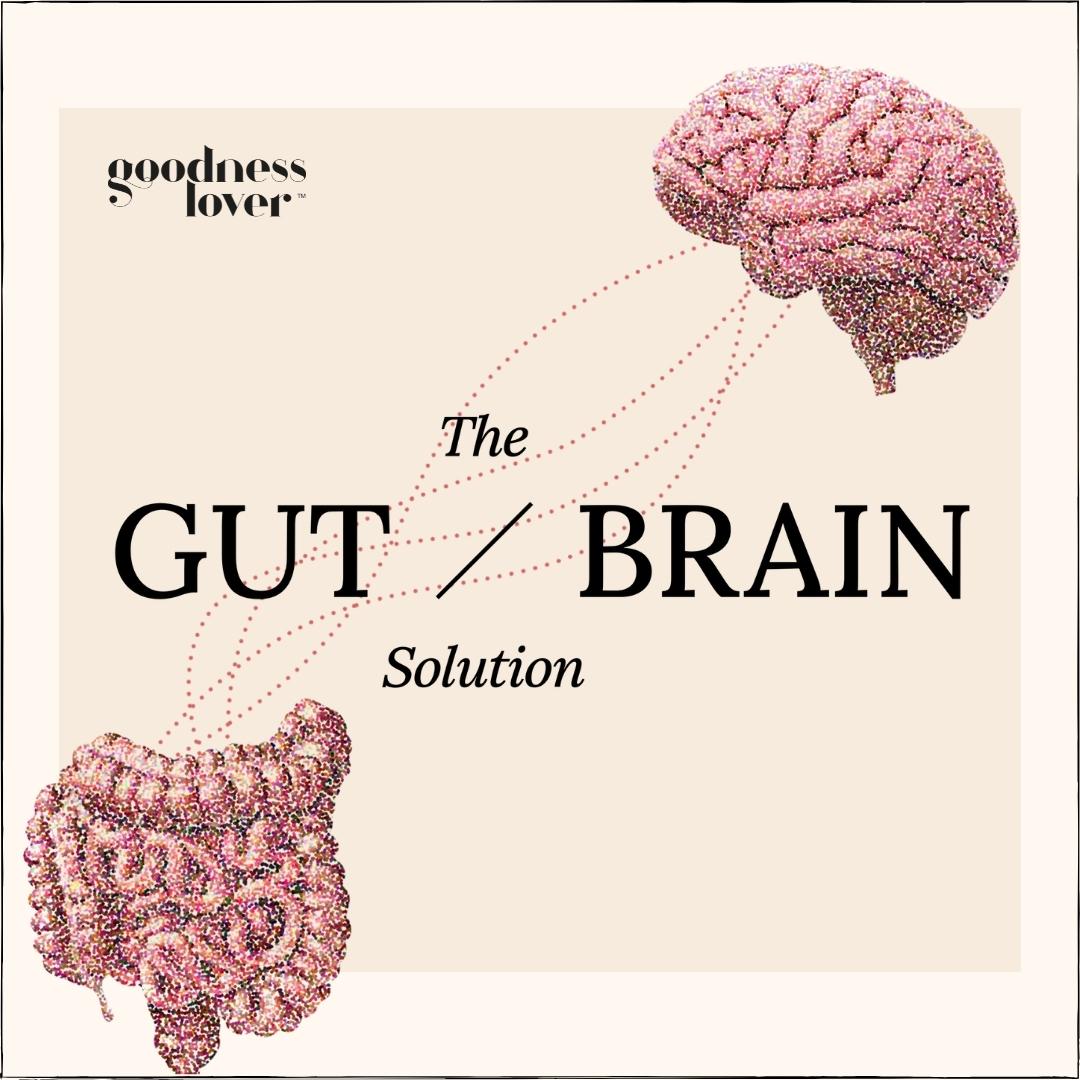

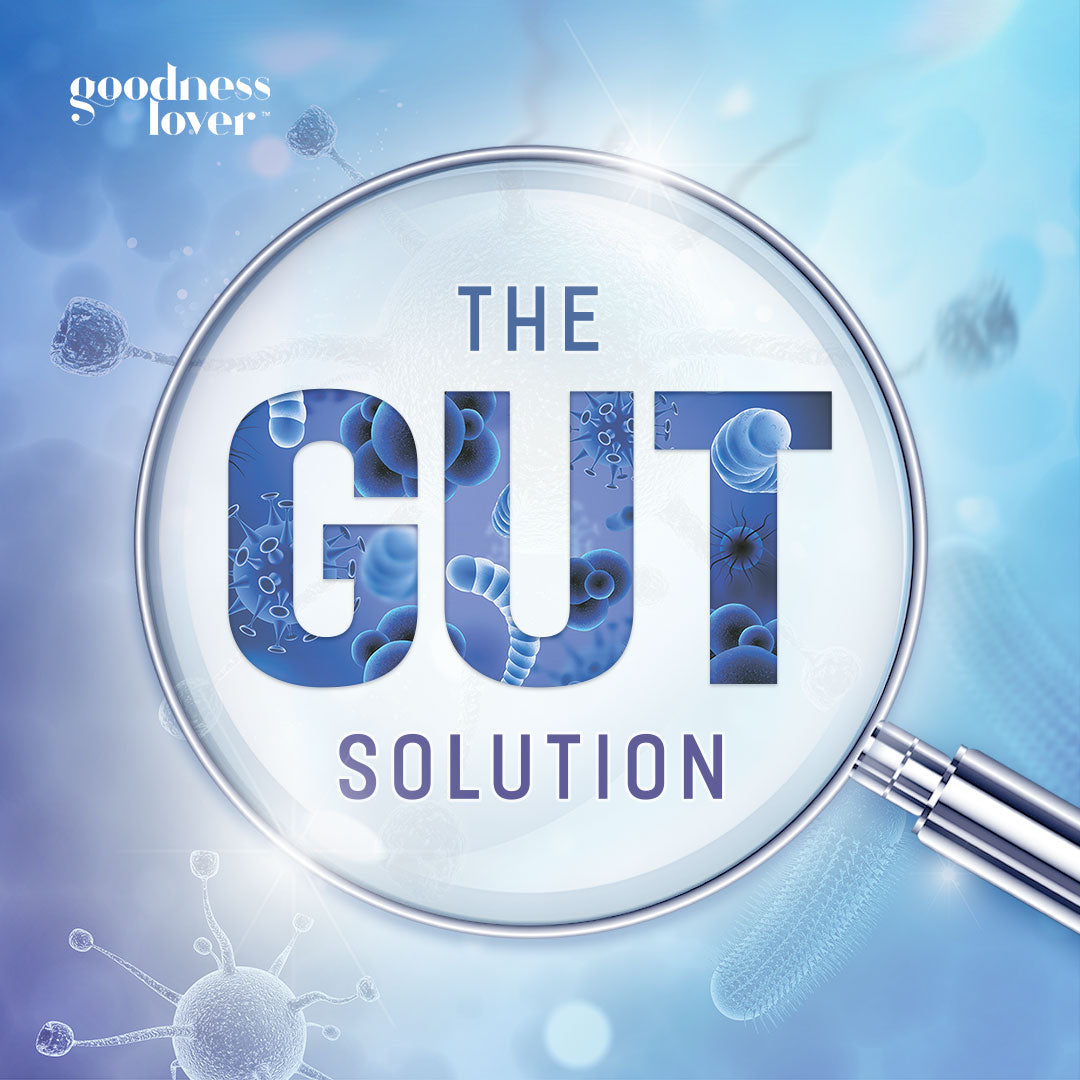
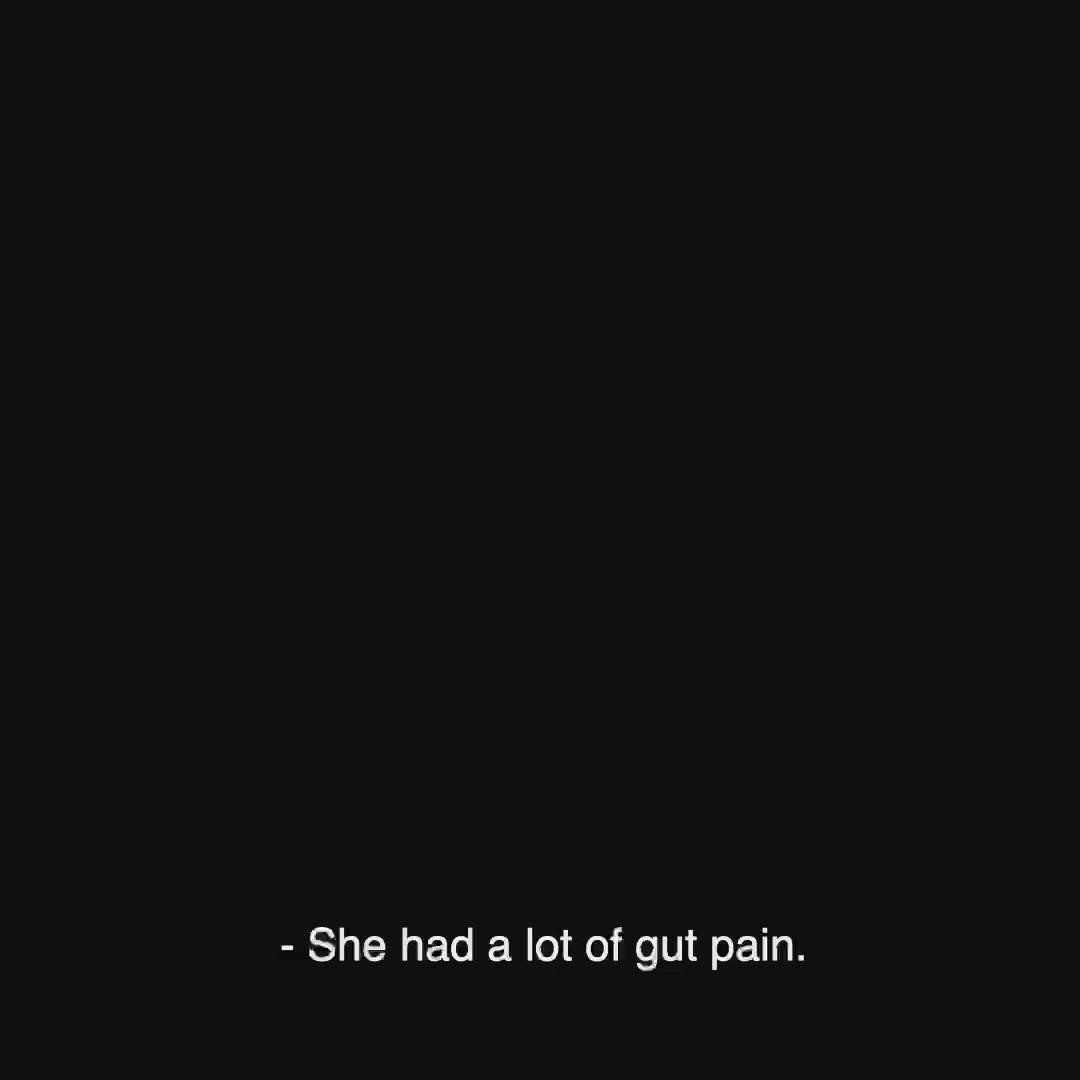
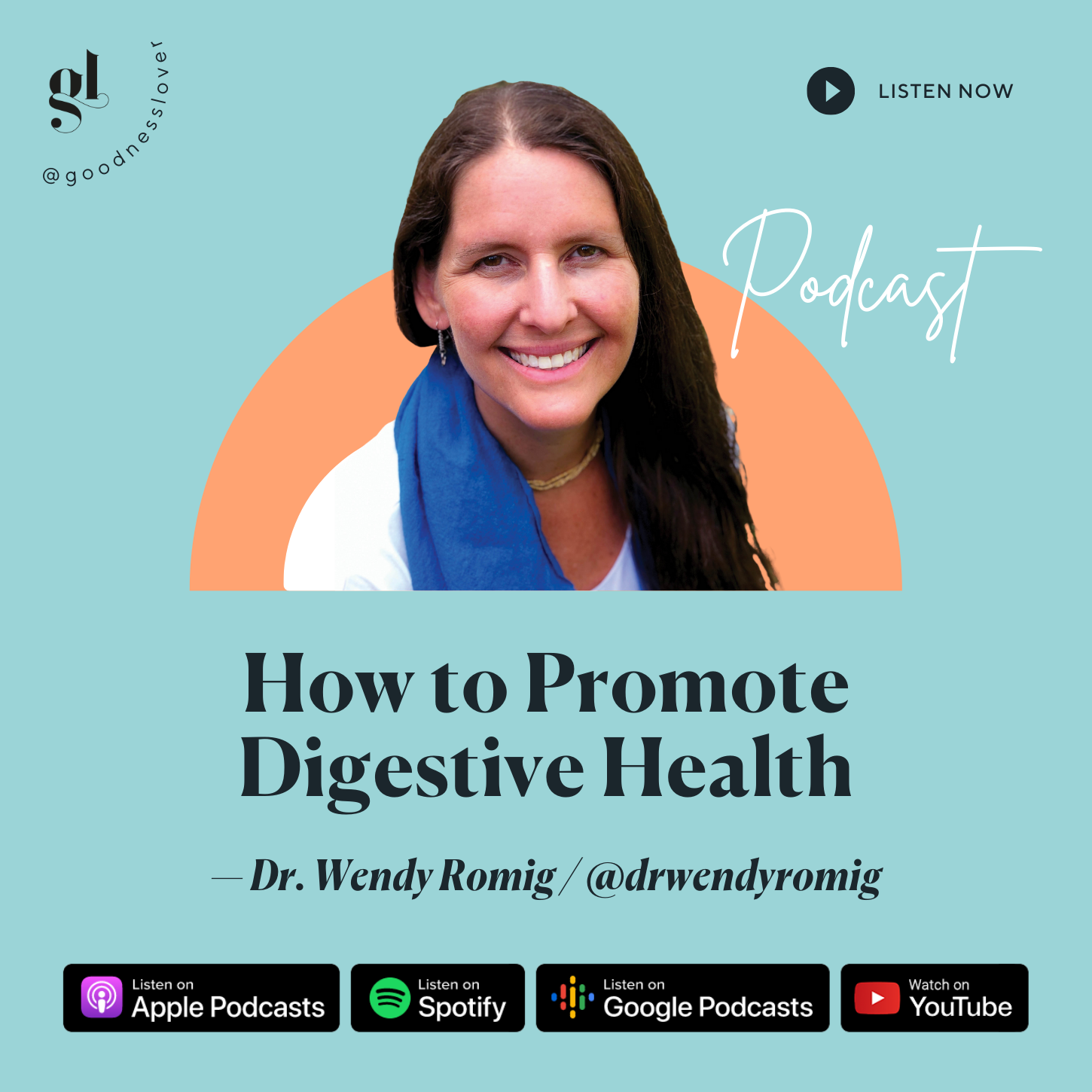
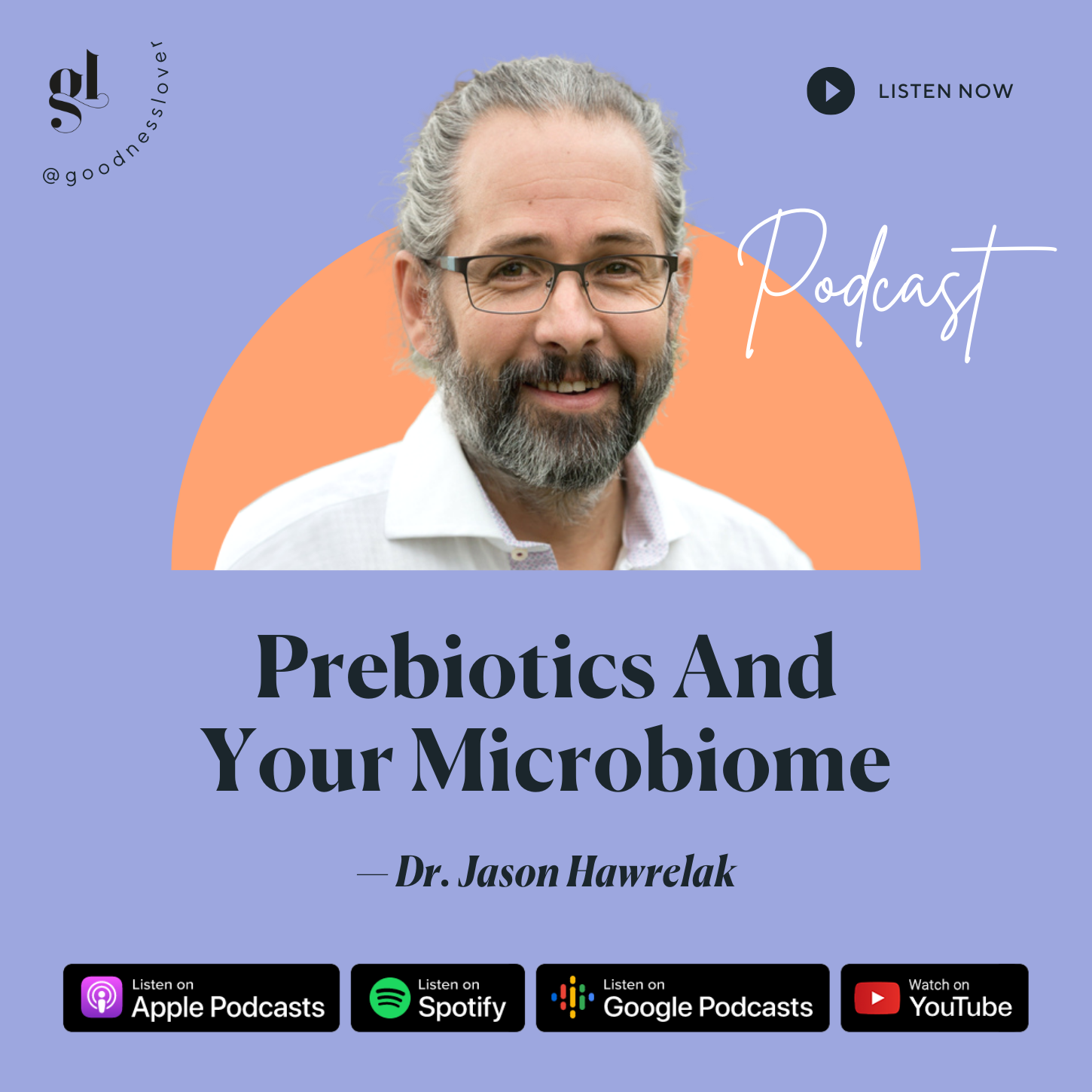

What Do You Think? Comment Below: